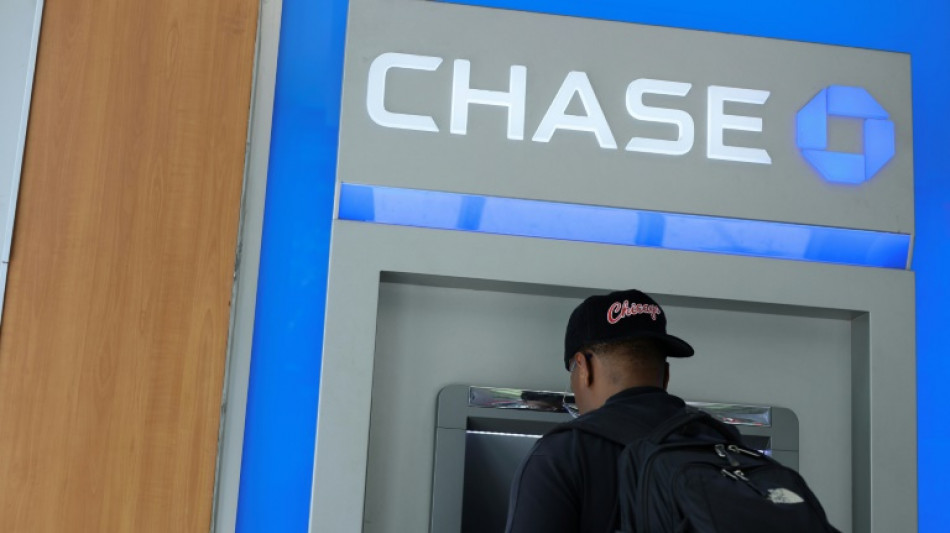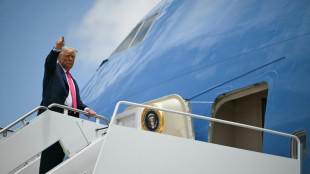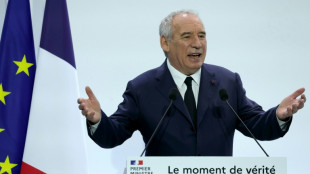
US banks see lower recession risk despite tariff fog

Large US banks reported results that topped estimates Tuesday as executives pointed to American economic resilience and said businesses were adapting to tariff uncertainty.
Executives from JPMorgan Chase and Citigroup described US consumers as still fundamentally healthy despite continued risks to the outlook. Both banks now see a lower risk of recession compared with April, when they last reported results.
Top officials with the banks also characterized clients as less frazzled by President Donald Trump constantly changing trade policy compared with April, when financial markets were in turmoil.
In the last week alone, Trump has threatened deep tariffs on some two dozen countries and spoken of new levies on copper and pharmaceuticals -- announcements that many market watchers remain skeptical will be enacted in light of previous tariff pivots by the US president.
"The corporate community ... has sort of accepted that they just need to navigate through this and are kind of getting on with it," JPMorgan Chief Financial Officer Jeremy Barnum told reporters on a conference call.
Citigroup CFO Mark Mason said businesses had acquired more "comfort with the uncertainty" compared to recent months.
"The general sentiment has improved a bit if you look at things like the prospect of a recession, that has fallen significantly from what it was earlier in the second quarter," Mason told reporters on a conference call.
- Soft landing eyed -
At JPMorgan, second quarter profits came in at $15 billion, down 17 percent from the year-ago period when results were boosted by a one-time equity item.
But that translated into $4.96 per share, compared with $4.49 projected by analysts behind higher profits in operating divisions.
Revenues were $44.9 billion, down 11 percent from the year-ago period.
In Q2 2025, JPMorgan benefited from higher asset management fees, as well as increased trading revenues amid financial market volatility during stretches of the quarter. These aspects helped offset higher technology expenses.
JPMorgan chief executive Jamie Dimon said investment banking activity had started slowly in the quarter, "but gained momentum as market sentiment improved," resulting in a seven percent gain.
Dimon described the tax cut extensions Trump recently signed into law as "positive" for the economic outlook, along with "potential deregulation," according to a statement.
"However, significant risks persist –- including from tariffs and trade uncertainty, worsening geopolitical conditions, high fiscal deficits and elevated asset prices," Dimon said. "As always, we hope for the best but prepare the Firm for a wide range of scenarios."
During a conference call with reporters, Dimon said the cautious comments related to possible outcomes and were not a prediction.
"The world is kind of pricing in a soft landing," he said. "We've been in that soft landing and it may very well continue."
At Citi, profits came in at $4.0 billion, up 25 percent from the year-ago level, while revenues rose eight percent to $21.7 billion. Profits were boosted by higher markets revenue and investment banking fees, among other areas.
Mason described the macroeconomic outlook as improved from April, which points to the "underlying strength" of the US private sector and capital markets.
"We do anticipate further consumer cooling the second half (of 2025) as tariff effects play through," Mason said, while adding that "the global economic performance has been quite resilient."
Shares of JPMorgan were flat at mid-morning Tuesday, while Citigroup rose 2.1 percent.
R.Fournier--PS

 London
London

 Manchester
Manchester
 Glasgow
Glasgow
 Dublin
Dublin
 Belfast
Belfast
 Washington
Washington
 Denver
Denver
 Atlanta
Atlanta
 Dallas
Dallas
 Houston Texas
Houston Texas
 New Orleans
New Orleans
 El Paso
El Paso
 Phoenix
Phoenix
 Los Angeles
Los Angeles


